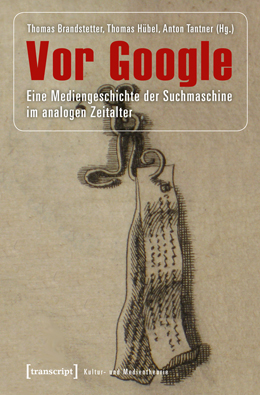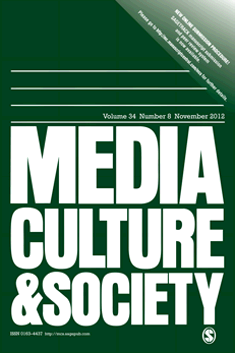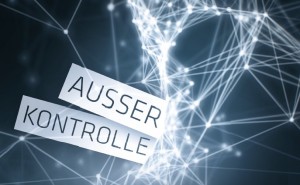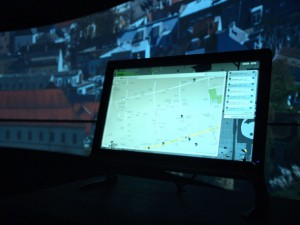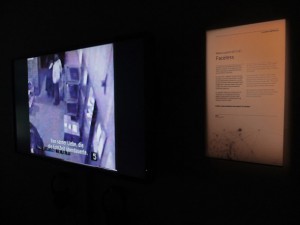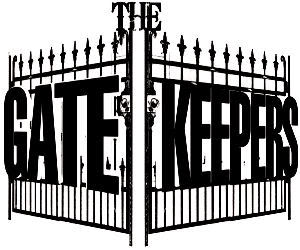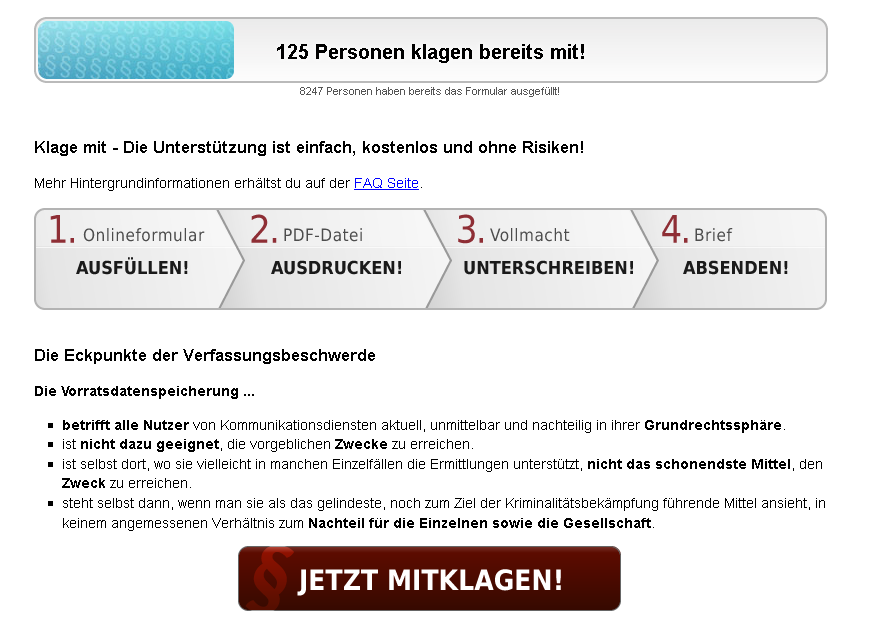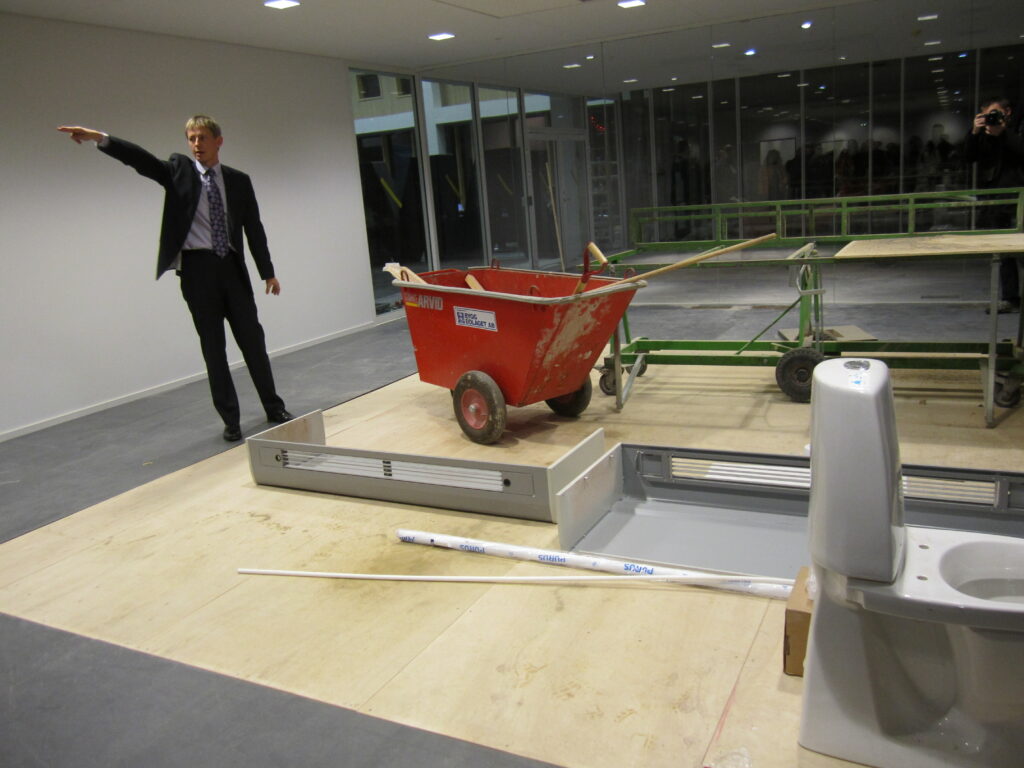Hier ist mein Blog Post zum Weizenbaum Institut, der kürzlich am openTA Blog erschienen ist (mit Dank an Ulrich Riehm und René König fürs Gegenlesen!):
Weizenbaum-Institut: Wird sein Name Programm sein?
Was zunächst als „Deutsches Internet Institut“ firmierte, wurde nun offiziell „Weizenbaum-Institut für die vernetzte Gesellschaft“ genannt. Im Mai 2017 konnte sich die Berliner Bewerbung einer Ausschreibung des Bundesministeriums für Bildung und Forschung (BMBF) gegenüber starker Konkurrenz durchsetzen. Im September wurde das Weizenbaum Institut der Öffentlichkeit präsentiert und kurz darauf öffnete es seine Pforten. Das Institut besteht aus einem Konsortium, das die Freie Universität Berlin, die Humboldt-Universität zu Berlin, die Technische Universität Berlin, die Universität der Künste Berlin, die Universität Potsdam, das Fraunhofer-Institut FOKUS und das Wissenschaftszentrum Berlin für Sozialforschung umfasst. Bis zu 50 Millionen Euro an öffentlichen Geldern stehen zur Verfügung, um in den nächsten fünf Jahren die ersten Schritte festzulegen (finanziert durch das BMBF). Derzeit sind mehr als 30 DoktorandInnen- und PostdoktorandInnenstellen ausgeschrieben; über 100 Stellen sollen es insgesamt werden. In wie weit der Name des Instituts das Programm bestimmen wird, wird sich in den nächsten Jahren zeigen.
Joseph Weizenbaum
Joseph Weizenbaum (1923-2008) war ein deutsch-amerikanischer Informatiker (die jüdische Familie emigrierte 1936 von Bremen aus in die USA), der als einer der wichtigsten Väter der künstlichen Intelligenz (KI) betrachtet wird. 1966 stellte er das Computer-Programm Eliza vor, das natürliche Sprache erstmals rechnergestützt verarbeiten konnte. Eliza liefert nach wie vor die Grundlage für gegenwärtige Chat Bots, die menschliches Kommunikationsverhalten simulieren. In Form von Social Bots sind sie heute in aller Munde, wenn wir an hitzige Debatten zu Fake News und zum postfaktischen Zeitalter denken.
Weizenbaum war also ein Pionier der zunehmenden Vernetzung der physischen und der digitalen Welt. Dieses Zusammenspiel von Technik und Gesellschaft soll im Zentrum des neu geschaffenen Instituts stehen. In seiner Selbstbeschreibung liest sich das folgendermaßen: „Die Aufgabe des Weizenbaum-Instituts wird es sein, aktuelle gesellschaftliche Veränderungen, die sich im Zusammenhang mit der Digitalisierung abzeichnen, zu untersuchen und künftige politische und wirtschaftliche Handlungsoptionen zu skizzieren.“ Um sich dieser Aufgabe zu stellen, wurden sechs konkrete Forschungsbereiche definiert: Arbeit, Innovation und Wertschöpfung; Vertrag und Verantwortung auf digitalen Märkten; Wissen, Bildung und soziale Ungleichheit; Demokratie, Partizipation und Öffentlichkeit; Governance und Normsetzung; Technikwandel.
Grundlagenforschung und Lösungen
Betont wird dabei der zentrale Charakter der Grundlagenforschung, wobei die „Exploration konkreter Lösungen“ ebenfalls auf dem Programm stehen soll. Als Teil der Digitalen Agenda der Bundesregierung wurde das Institut schon in seiner Ausschreibung als lösungsorientiert beschrieben. So weist Frau Schieferdecker, eine der drei GründungsdirektorInnen, in einem TAZ Interview zwar auf die „zunehmenden Risiken einer digitalen Vernetzung“ hin, meint aber gleichzeitig „viele Bedenken werden aus Unwissenheit oder aufgrund von fehlendem Verständnis überinterpretiert“. Dementsprechend beschreibt Frau Schieferdecker als eine zentrale Aufgabe des Instituts, „das Verständnis für den digitalen Wandel zu stärken“ .
Diese Haltung erinnert an das in der Wissenschafts- und Technikforschung beschriebene „Defizitmodell“, das mangelndes Vertrauen in techno-wissenschaftliche Entwicklungen in einem Defizit an Wissen begründet sieht. Wissenschaft und Technik selbst werden dabei nicht hinterfragt. Zahlreiche Forschungen haben auf Grenzen dieses Modells hingewiesen und gezeigt, dass das Verhältnis von Techno-Wissenschaft und Öffentlichkeit viel komplexer ist. Demnach sei eine kritische Auseinandersetzung mit Wissenschaft und Technik erforderlich, die nicht allein durch Information und Aufklärung, sondern vielmehr durch Dialog und Partizipation erreicht werden kann (z.B. Michael 1992, Wynne 1992). Ganz im Sinne von Weizenbaum, der später als strenger Kritiker von gedankenloser Computergläubigkeit in die Geschichte der Informatik einging. So warnte er bereits 1972 in seinem ZEIT Aufsatz „Albtraum Computer“ vor blindem Vertrauen in Computertechnik und künstliche Intelligenz. Seit Weizenbaum beobachtet hatte, dass Menschen seinem Computer-Programm „Doctor“, das ein Gespräch mit einem Psychologen simulierte, intimste Details anvertrauten und als Ersatz für einen menschlichen Therapeuten betrachteten, forderte er einen kritischen Umgang mit Computern ein. In seinem Buch „Die Macht der Computer und die Ohnmacht der Vernunft“ (1978) rief er demnach dazu auf „Wissenschaft und Technik rational einzusetzen, statt sie zu mystifizieren“.
Kritische Aspekte?
In Zeiten von Machine Learning, Big Data Analysen und algorithmusgestützter Vermessung von Wissen, Arbeit und Körperdaten bleibt zu hoffen, dass sich das neu gegründete Institut auch mit kritischen Fragestellungen auseinandersetzen wird, selbst wenn diese wirtschaftlichen und politischen Interessen zuwiderlaufen sollten. Die öffentliche Finanzierung ist begrüßenswert in diesem Zusammenhang und unterscheidet das Weizenbaum Institut von anderen Institutionen wie dem Leistungszentrum Digitale Vernetzung, dem Einstein Center Digital Future oder dem Alexander von Humboldt Institut für Internet und Gesellschaft, die ebenfalls in Berlin angesiedelt sind.
Rechtliche, ethische, gesellschaftliche und ökonomische Aspekte der Digitalisierung „unabhängig und interdisziplinär“ erforschen zu wollen ist ein guter Anfang. Ob heikle Themen wie Quasi-Monopolstellungen im Internet, Kommerzialisierung von Wissen und persönlichen Daten, neue Formen von Ausbeutung durch digitale Arbeit oder die Gefährdung von Grundrechten durch US-Amerikanische Technologiekonzerne in diese Forschungsagenda einfließen werden, bleibt abzuwarten. Wichtig erscheint mir jedoch Weizenbaums Worte an dieser Stelle noch einmal in Erinnerung zu rufen: „Wir müssen einsehen, dass die Technologie unser Traum ist und dass wir es sind, die schließlich entscheiden, wie er enden wird.“
Bild: From Wikimedia Commons, the free media repository
https://commons.wikimedia.org/wiki/Category:Joseph_Weizenbaum




